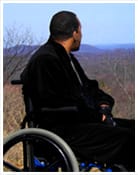Transportation Secretary Considers A Ban On All Cellphone Use While Driving
With the same zeal with which he has sought to ban texting while driving, U.S. Transportation Secretary Ray LaHood is now pushing for a broader prohibition on the use of all electronic devices in motor vehicles. “I don’t want people talking on phones, having them up to their ear or texting while they’re driving,” LaHood said in an interview with Bloomberg News. Since his campaign against texting behind the wheel began in 2009, 30 states have enacted such laws. In addition, federal law prohibits commercial motor carriers and federal employees from texting or e-mailing while driving.
LaHood believes that even calls on hands-free devices are a cognitive distraction, as are vehicle information and entertainment systems like General Motors’ (GM) popular OnStar system (which enables drivers to speak with service people and emergency responders) and Ford’s Sync system (which allows drivers to control entertainment functions and climate controls with voice commands). He has called for research into the use of such devices and whether they serve to limit behind-the-wheel distractions or merely create new ones.
Some believe that an outright ban on cellular devices has little chance of being enacted, especially without public support for such a limitation. Christopher King, a telecommunications analyst at Stifel, Nicolaus & Company believes that cellphone use is so ingrained in our society that it would be nearly impossible to garner mass support.
Automakers and cellphone providers would also likely be opposed a complete ban on cellphone use. While they support responsible uses of mobile devices, they recognize that the Secretary’s efforts may hamper the development of new products and reduce future revenue. Ford and GM are both promoting interactive devices to attract younger drivers for vehicles such as the Chevrolet Cruze and Ford Focus. Meanwhile, OnStar is testing a new service that would allow drivers to use voice commands to even update Facebook pages. Ford looks to include social networking and web browsing devices in its vehicles by 2015.
According to CTIA, a trade organization representing wireless providers, U.S. cellphone carriers generated $152 billion in 2009 based on 2.3 trillion minutes of cellular usage. An outright ban would most definitely impact their bottom lines.
Despite initial opposition and the unlikelihood that a complete ban on electronic devices would be feasible, history has shown that DOT’s financial clout can be persuasive. The federal government has previously awarded financial packages based on whether states adopted controversial safety measures such as seat belt laws, speed limits and .08 BAC levels.
Until such a time when a ban is passed, however, people will likely continue to use handheld mobile phones, PDAs and other similar gadgets behind the wheel, leading to distracted driving and motor vehicle accidents. If you or a loved one has been injured by the actions of a distracted driver, consult an experienced personal injury attorney in your area to learn more about possible legal options.

